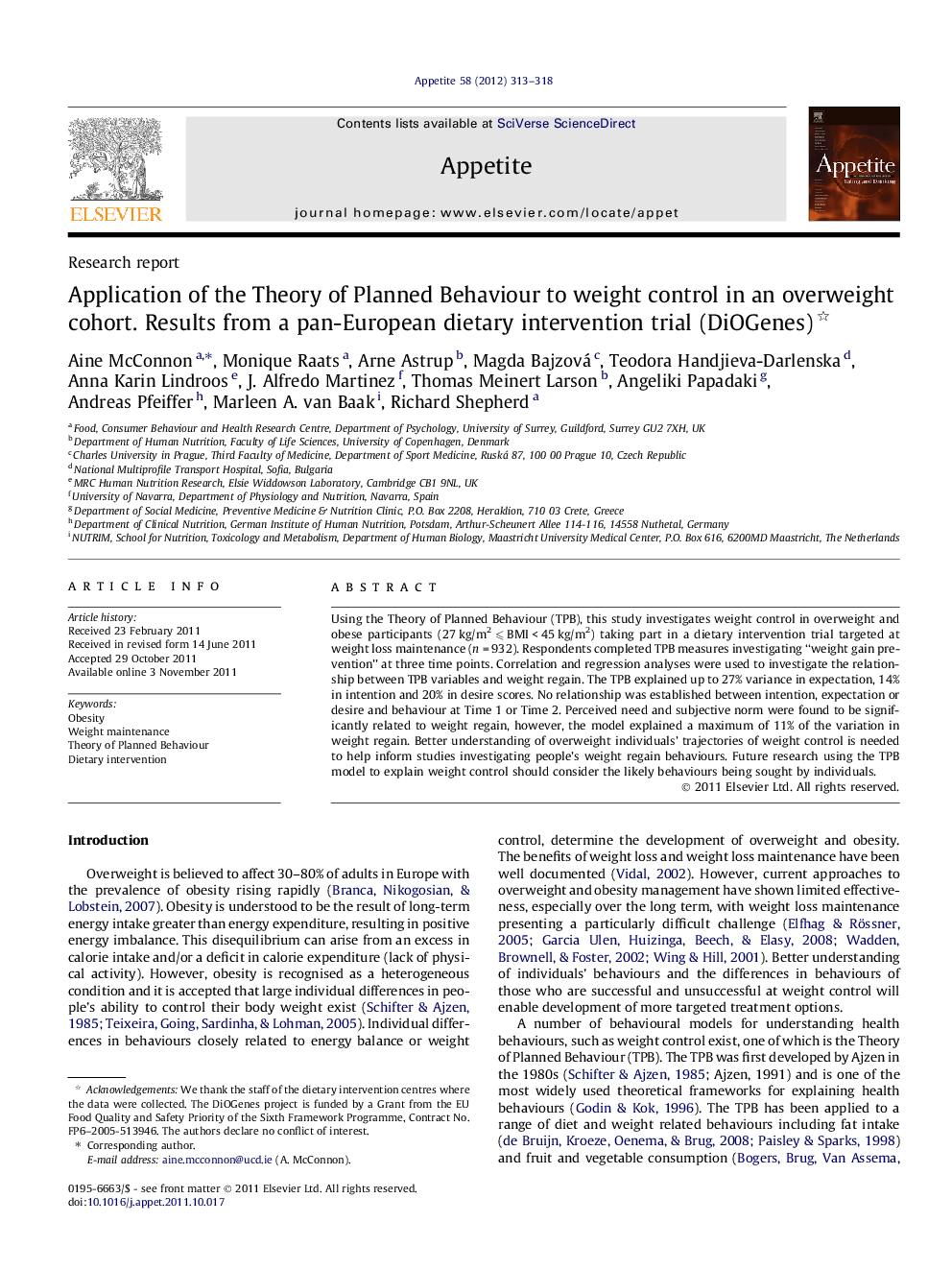| Article ID | Journal | Published Year | Pages | File Type |
|---|---|---|---|---|
| 940360 | Appetite | 2012 | 6 Pages |
Using the Theory of Planned Behaviour (TPB), this study investigates weight control in overweight and obese participants (27 kg/m2 ⩽ BMI < 45 kg/m2) taking part in a dietary intervention trial targeted at weight loss maintenance (n = 932). Respondents completed TPB measures investigating “weight gain prevention” at three time points. Correlation and regression analyses were used to investigate the relationship between TPB variables and weight regain. The TPB explained up to 27% variance in expectation, 14% in intention and 20% in desire scores. No relationship was established between intention, expectation or desire and behaviour at Time 1 or Time 2. Perceived need and subjective norm were found to be significantly related to weight regain, however, the model explained a maximum of 11% of the variation in weight regain. Better understanding of overweight individuals’ trajectories of weight control is needed to help inform studies investigating people’s weight regain behaviours. Future research using the TPB model to explain weight control should consider the likely behaviours being sought by individuals.
► TPB was used to examine weight control in overweight and obesity. ► Pan-European dietary intervention trial investigating weight loss maintenance. ► TPB model was more effective at predicting expectation than intention or desire. ► A positive relation between perceived need and weight regain was revealed.
